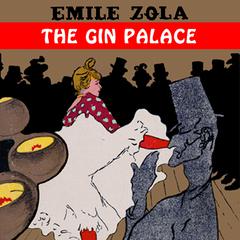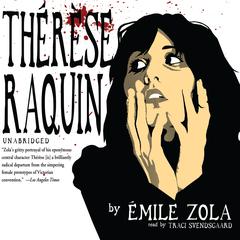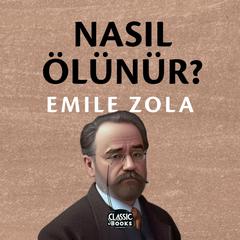 Play Audiobook Sample
Play Audiobook Sample
The Belly of Paris Audiobook
 Play Audiobook Sample
Play Audiobook Sample
Quick Stats About this Audiobook
Total Audiobook Chapters:
Longest Chapter Length:
Shortest Chapter Length:
Average Chapter Length:
Audiobooks by this Author:
Publisher Description
Although it is little known in this country, The Belly of Paris is considered one of Émile Zola’s best novels. Set in the newly built food markets of Paris, it is a story of wealth and poverty set against a sumptuous banquet of food and commerce.
Having just escaped from prison after being wrongfully accused, young Florent arrives at Paris’ food market, Les Halles, half starved, surrounded by all he can’t have, and indignant at his world, which he now knows to be unjust. He finds that the city’s working classes have been displaced to make way for bigger streets and bourgeois living quarters, so he settles in with his brother’s family. Gradually, he takes up with the local socialists, who are more at home in bars than on the revolutionary streets. Slowly, the ever-widening gap between the rich and the poor drags the city to the breaking point.
Download and start listening now!
"The descriptions of the marketplace, the food there, and the people are so detailed and evocative. I longed for a richer examination of some of the characters' motivations, but the description of Cadine and her companion and their lives in the market and amongst the stalls and the cellars was rich."
— Chris (5 out of 5 stars)
Quotes
-
“[The novel’s] descriptions of cuisine…are notable for their length, detail, and humor.”
— Washington Post -
“One of Zola’s own favorites, [The Belly of Paris] is a brilliant exposition of one man’s fragmentation and an often painful indictment of those who live innocent of infamy or praise.”
— Publishers Weekly
The Belly of Paris Listener Reviews
-
" Excellent view of les Halles market in 1860's Paris. A book I wish could go on & on. "
— Jennifer, 2/9/2014 -
" While I am glad to have read an Emile Zola novel (admittedly my first from beginning to end), The Belly of Paris is not - at least in my opinion - one of the best food books ever. "
— Sarah, 2/3/2014 -
" OK, but not one of Zola's best. Personal and political intrigue set in Les Halles market in Paris in the 1850s. Zola is obsessed with providing very detailed descriptions of the look and smell of various foods. At one point, the story grinds to a halt while he devotes two pages to descibing the smells of various cheeses. But...Zola does immerse you in the life of ordinary people in that historic era, which makes it an interesting read. "
— Larry, 2/2/2014 -
" The Belly of Paris contains many excellent literary images of Paris in the late 1850s: The action, such as it is, takes place between 1858 and 1859, mostly in the market area of Les Halles. Zola created many three-dimensional characters, but marooned them in a lame plot with a weak, predictable climax. If you enjoy excellent prose - there's a reason we're still reading Zola in the 21st century - and don't demand slam-bang action on every page, try The Belly of Paris. You'll learn a lot about what it was like being a working-class citizen (some might say a peasant) in the city back in the times of Napoleon III. Just don't expect excitement. "
— Mike, 1/28/2014 -
" took me a long time to read this book, but I am glad that I did "
— Tai, 1/23/2014 -
" Interesting read. Very descriptive. This is always on the foodie/Bourdain reading lists. Hard to get into the story but I am glad I read it. "
— Erika, 1/17/2014 -
" I couldn't read this while I was hungry. "
— Cheryl, 1/14/2014 -
" Typical Zola. An average plot, made good by wonderful descriptions of the setting. Kept getting hungry while reading this. "
— Hadrian, 1/11/2014 -
" I'm reading the English version: The Fat and the Thin. I couldn't really get through it. It was dense with description--not much on story (at least for the first 87 pages which is where I stopped.) "
— Robyn, 11/10/2013 -
" I really tried to like it but I couldn't get through it. I wanted to learn the rest of the story without having to put up with the author. "
— Pamela, 3/11/2013 -
" I'm a little over half-way through, one of the best novels I've read. "
— Tony, 2/6/2013 -
" This novel set in the food markets of 1850 Paris is a very good book. "
— Paul, 2/4/2013 -
" Surprisingly delightful and entertaining. Zola's descriptions of the food markets are incredible - both sensual and disgusting. I need to do more reading of things that weren't written in the past decade. "
— Gretchen, 1/20/2013 -
" i as a huge fat slob appreciate a fat positive novel in these fat-shaming times. "
— lyell, 10/29/2012
About Émile Zola
Émile Zola (1840–1902), French writer and critic, was raised in a poor family at Aix-en-Provence and at age eighteen went to Paris where he worked as a clerk and a journalist before turning to writing novels. For many years he used his fiction in the service of his passion for social reform. He published many masterworks but is perhaps most famous for his series of novels called Les Rougon-Macquart, one of the chief monuments of the French naturalist movement.
About Frederick Davidson
Frederick Davidson (1932–2005), also known as David Case, was one of the most prolific readers in the audiobook industry, recording more than eight hundred audiobooks in his lifetime, including over two hundred for Blackstone Audio. Born in London, he trained at the Royal Academy of Dramatic Art and performed for many years in radio plays for the British Broadcasting Company before coming to America in 1976. He received AudioFile’s Golden Voice Award and numerous Earphones Awards and was nominated for a Grammy for his readings.

















